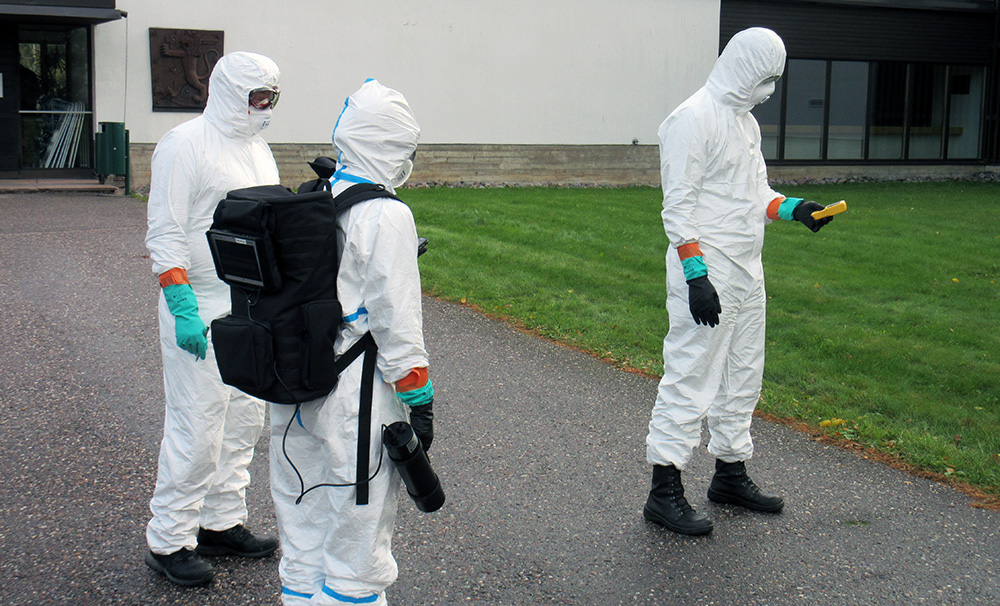The voluntary radiation measurement team strengthens Finland's measurement capacity
The Radiation and Nuclear Safety Authority (STUK), in co-operation with the National Defence Training Association of Finland (MPK) and the National Emergency Supply Agency (NESA), has trained and equipped a radiation monitoring team to support STUK and other authorities. The voluntary team strengthens Finland's national radiation monitoring capability.
A large-scale radiation hazard situation has an impact on society as a whole. It may be the result of
- an accident at a nuclear facility in Finland or in a neighbouring area
- a nuclear weapon explosion
- deliberate disintegration of a high-activity source.
During and after the radiation hazard situation, lots of radiation measurements and sampling are needed to ensure the safety of the living environment and to support the authorities' decision-making. In the event of a radiation hazard situation, the team is able to carry out independently the tasks it has received, such as clarifying the radiation situation, taking cleanliness measurements of people and vehicles leaving the hazard zones, and providing guidance. The team has access to versatile and modern radiation measurement equipment.
The team’s duties are particularly well suited for military reservists who have received training in radiation protection, as well as anyone else with experience in radiation protection, radiation measurement, radio chemistry or protective equipment. Previous experience is not necessary, as the tasks can be learned through study and practical exercises. The performance of tasks requires a normal state of health, as some of the activities take place in protective clothing.
Those wishing to join the radiation measurement team will first complete a two-weekend-long basic course, which is implemented as the MPC's preparedness and safety training. The language of training is Finnish.

Content of the basic course
- Basic information about radiation
- Radiation hazard situations and protective measures
- Tasks and operation of the radiation monitoring team in radiation hazard situations
- Organization and equipment of the radiation monitoring team
- Carrying out radiation measurements
- Safety at work and radiation protection
- Use of personal protective equipment
- Use of the VIRVE radio and communication training
- Health effects of radiation
- Encountering an exposed person
- Arrangements at the radiation measurement location
- Applicable exercises
Volunteers who commit themselves after the basic course will undergo a health examination, undertake a security clearance and receive personal protective clothing. The participants are expected to commit to the team for several years.
Each year, the team receives further training and various types of exercises in order to maintain and develop the competence acquired during the basic course. Reservists are requested to complete refresher training days, including training and exercises, which are granted by the regional office on a case-by-case basis.
Partners
The Radiation and Nuclear Safety Authority (STUK) monitors the safety of the use of nuclear energy and the use of radiation, as well as radiation and radioactivity in the environment. In the event of a radiation hazard situation, STUK makes recommendations to the competent authorities, for example, on measures to protect the public. STUK contributes to the development of national preparedness for accidents and damage to the environment.
The National Defence Training Association (MPK) (mpk.fi) is the most comprehensive overall security training provider in Finland. Courses organized across Finland provide you with the knowledge, skills and capabilities needed to cope with everyday hazard situations and exceptional situations.
The National Emergency Supply Agency (NESA) (huoltovarmuuskeskus.fi) is responsible for the maintenance and development of the country's security of supply. The basis for the operations is the extra-budgetary National Emergency Supply Fund.